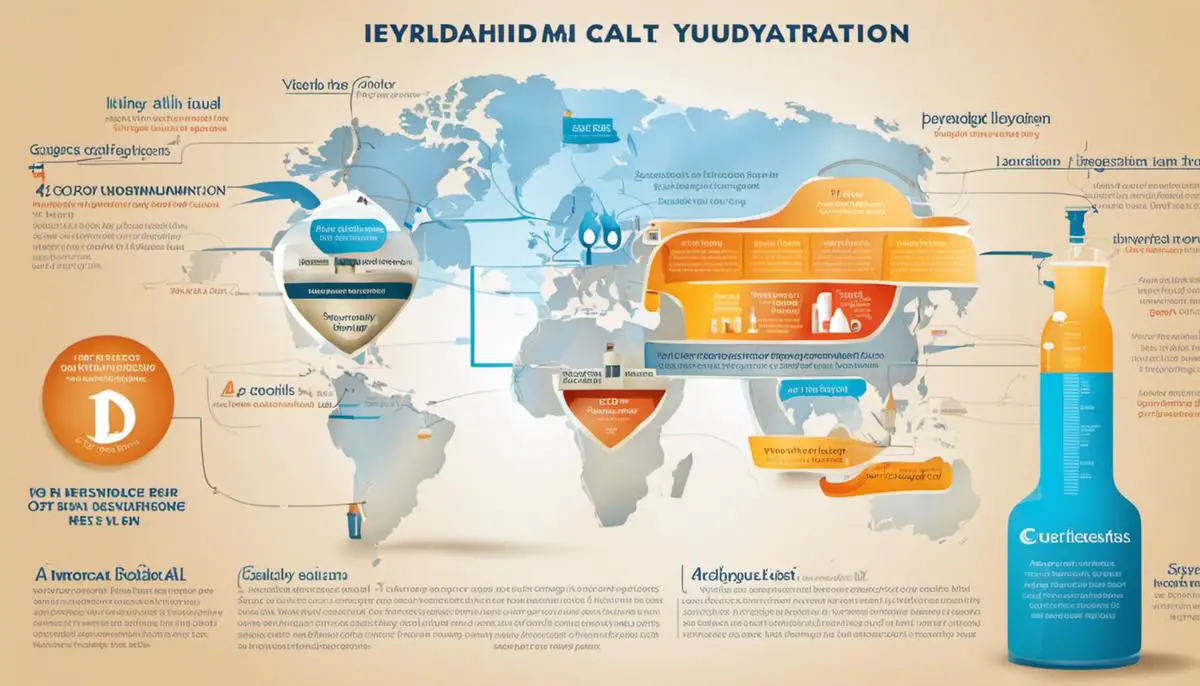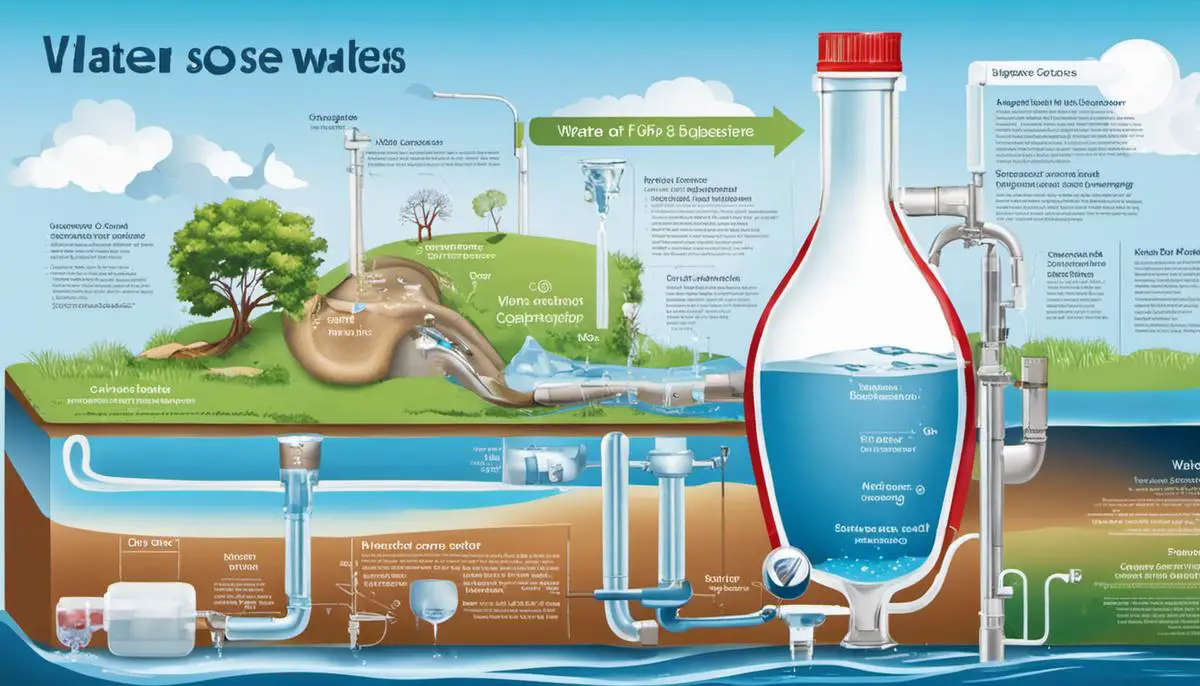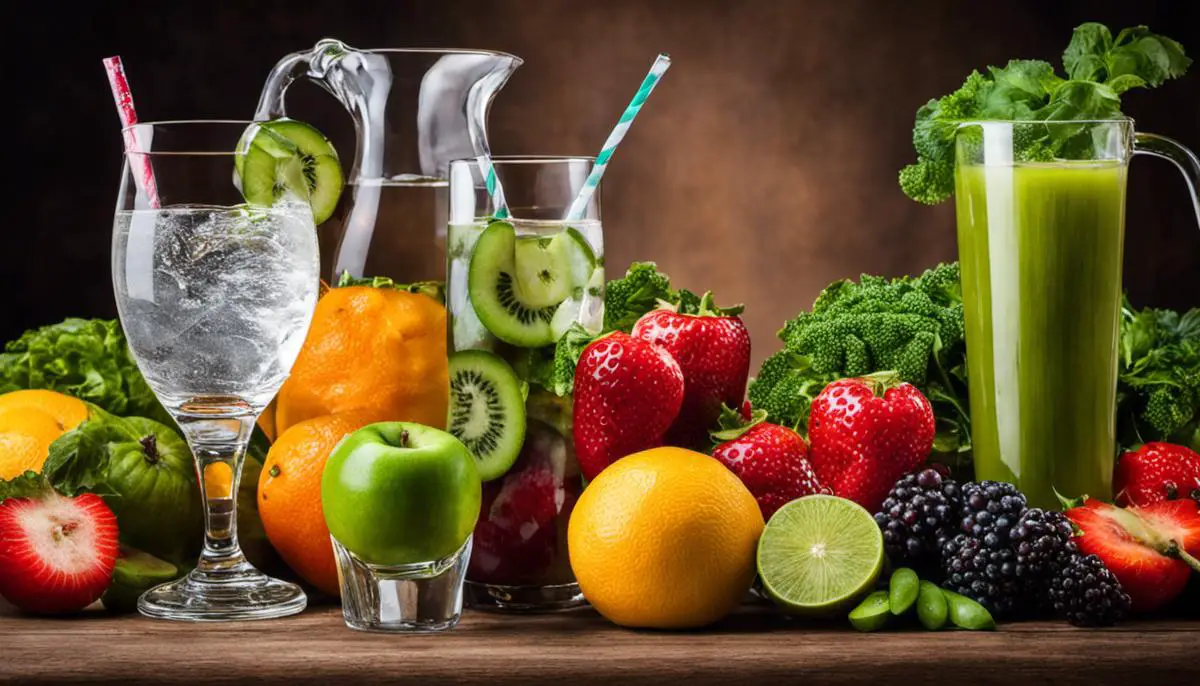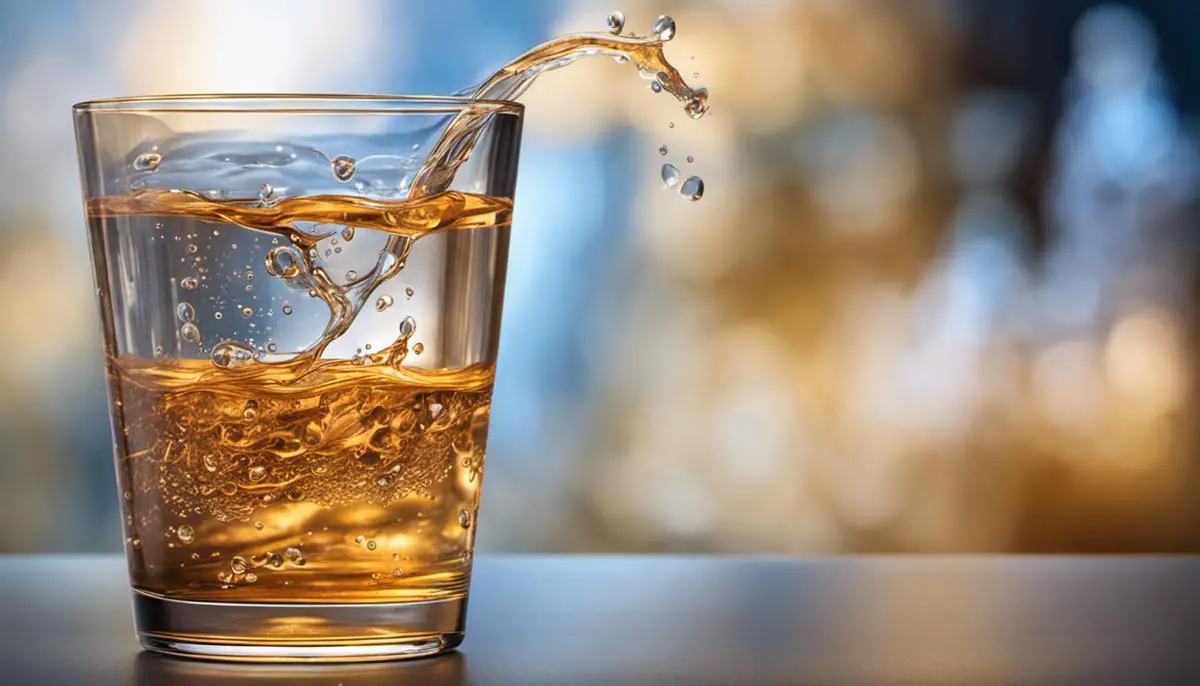Hydration plays a significant, yet often overlooked, role in our overall health and wellness – especially in the robust functioning of our digestive system. From breaking down food and absorbing nutrients, to even carrying waste out of the body, water is an indispensable part of these processes. Consequently, understanding the relationship between drinking water and digestion can equip us with invaluable insights for traversing the complex sphere of health and wellness. In this discourse, we will appreciate the importance of water for digestive health, delve into the scientific mechanisms that underscore this function, and finally, debunk prevalent myths and misconceptions related to the consumption of water and digestion.
Water and Digestive Health
The Importance of Adequate Hydration for Digestive Health
Hydration through water intake is critical to the functioning and overall health of the human digestive system. Water aids digestion in several ways. Firstly, it assists in breaking down the food we eat, making it easier for our bodies to absorb nutrients. It also softens stools, preventing constipation and promoting regular bowel movements. Additionally, water is crucial for the production of digestive enzymes and saliva, which not only help in the breakdown of food but also shield our teeth from tooth decay.
Dehydration and Digestive Health
On the other hand, inadequate water intake, or dehydration, has detrimental effects on the digestive system. It can lead to digestive problems such as constipation, acid reflux, and even stomach ulcers. When the body is dehydrated, it draws water from the stools to maintain its essential functions, resulting in harder and drier stools that are difficult to pass. Dehydration can also result in increased acidity in the stomach, causing heartburn and acid reflux.
Optimal Water Intake
It’s commonly suggested to drink at least 8-10 glasses of water per day, though this can vary depending on your health, activity levels, and individual needs. Keep in mind that it’s possible to overhydrate, which could lead to imbalances in electrolyte levels. Consult with a healthcare provider or dietitian to determine the best amount of water intake for you.
Water Intake with Meals
Consuming water before, during, and after meals can have different impacts on digestion. Drinking water before a meal can enable better nutrient absorption as it primes the stomach for food. It also makes you feel fuller, which can be beneficial for weight management. During meals, water can assist in breaking down food, making it easier for the body to absorb nutrients. However, excessive water intake while eating may dilute digestive enzymes and slow down the digestion process. As for drinking water after meals, it could help rinse the mouth and throat of lingering food particles and aid in the digestive process.
Water and Nutrient Absorption
Adequate hydration is key for nutrient absorption. Nutrients, such as vitamins and minerals, need water to be properly absorbed into the bloodstream and transported to the cells where they are needed. When we’re dehydrated, the body might not absorb nutrients as effectively, potentially leading to nutritional deficiencies.
To summarise, the key to good digestive health is proper hydration. Drinking enough water not only assists in breaking down and absorbing nutrients from our food, but it also acts as a preventive measure against digestive problems like acid reflux and constipation. Drinking water around meal times can boost digestion and promote better absorption of nutrients. However, it’s important to note that individual water intake needs can differ greatly, making it smart to consult with health professionals for personalized advice.

Scientific Explanation on How Water Aids Digestion
Understanding the Importance of Water in Digestion
Water is crucial to our digestive process from the moment we start eating. It begins working as soon as food enters our mouth, breaking down the structures so that our bodies are able to utilize the nutrients from what we eat. This process starts with saliva, composed primarily of water, which commences the breakdown of food and makes it simpler for the rest of our digestive system to function effectively.
Water as Solvent
Inset along the the walls of the gastrointestinal tract are small glands that secrete digestive juices. These juices contain various enzymes that break down nutrients in food into smaller particles. Water is the base for these juices and without it, the enzymes wouldn’t be able to perform their digestive functions sufficiently.
Water Aids in Nutrient Absorption
Water aids in nutrient absorption by helping dissolve vitamins, minerals, and other nutrients from the food. These dissolved substances are then absorbed by the walls of the small intestine and passed into the bloodstream. Here, water yet plays another crucial role as a blood component. Blood, being primarily water, helps transport these dissolved nutrients to the rest of the body.
Facilitating in the Movement of Food
After absorbing nutrients from food, the remains are pushed through to the colon or large intestine where water plays another vital role. Water aids in the softening of the leftover waste, easing its passage through the colon and out of the body.
Hydration Levels and Digestive Health
Dehydration can lead to digestive problems such as constipation and an overly acidic stomach. This increases the risk of heartburn and stomach ulcers. It’s important to note that while water aids digestion, consumption of excessive amounts immediately before or after a meal can alter the natural pH level of the stomach, affecting enzyme activity and thus impairing digestion.
Findings from Various Scientific Studies
Several scientific studies have been conducted that delve into the importance of water for digestion. A study published in the European Journal of Clinical Nutrition reported that low water consumption can be a factor in constipation. Similarly, a 2003 study published in the American Journal of Digestive Diseases and Nutrition found that keeping hydrated can help prevent the formation of kidney stones, underlining the importance of water in maintaining overall digestive health.
The Vital Role of Water in Digestion
Drinking an adequate amount of water plays a key role in promoting efficient digestion and overall health. The Institute of Medicine (IOM) suggests that men should aim to ingest 3.7 liters (equivalent to 13 cups) and women should target 2.7 liters (around 9 cups) of water per day from all kinds of beverages and food. Though these are general guidelines, keep in mind that the quantity of water required can fluctuate based on various factors such as age, gender, weight, level of physical activity, and overall health condition.

Myths and Misconceptions Around Drinking Water and Digestion
Fact Check: Does Cold Water Impede Digestion?
A prevalent perception suggests that drinking cold water while eating meals can potentially hamper the efficiency of digestion, hypothesizing that cold water might solidify the oils and fats in the food thus making them harder to digest. Contrarily, current scientific studies and available evidence do not support or validate this claim, suggesting that the temperature of the water consumed during meals does not negatively impact the digestive process.
Misconception: It’s Bad to Drink Water During Meals
There’s often a belief that drinking water directly during meals may dilute stomach acids and digestive enzymes, hampering digestion. However, digestion doesn’t solely depend on stomach acid strength, as several physiological processes contribute to it. Some studies suggest drinking water during meals might actually improve digestion by softening stool, preventing constipation, and maintaining a healthy weight.
Fact: Drinking Warm Water Can Aid Digestion
In contrast to misconceptions around drinking cold water, there is some evidence suggesting that warm water can help digestion, especially when consumed first thing in the morning. As per a study in the European Journal of Pharmaceutical and Medical Research in 2017, warm water intake showed significant effects in the prevention of certain metabolic and cardiovascular diseases. The same study also suggested that warm water intake had visible effects in controlling constipation and improved bowel movements.
Fact: Water Can Play a Role in Metabolizing Fat
A well-documented fact is that water plays a crucial role in the digestion and absorption of food. The process of hydrolysis helps break down the food molecules so they can be absorbed into the body. Additionally, according to a study published in The Journal of Clinical Endocrinology and Metabolism, drinking water can increase your metabolic rate, helping the body process calories and fat more efficiently.
Controversy: Timing of Water Intake
There are mixed opinions about the timing of drinking water for optimal digestion. While some believe that it is best to drink water 30 minutes before meals to prepare the stomach for incoming food, others suggest it’s best to drink water after finishing a meal to help wash down food. Until now, scientific studies have been inconclusive on when is the best time to drink water for optimal digestion.
Balance: Can Water Ever Hinder Digestion?
In some particular cases, excessive water intake can lead to a situation called hyponatremia (water poisoning), in which the body’s sodium levels drop dangerously low. This can interfere with the body’s osmotic balance, potentially hampering digestion and leading to severe health problems. Thus, while staying hydrated is important, too much of anything can be harmful.
In conclusion, drinking water does aid digestion in reasonable quantities, irrespective of whether it’s consumed before, during, or after meals. It’s important to maintain a balanced perspective on these issues, ensuring water intake is sufficient to aid digestion but not excessive to harm the body’s natural physiological processes.

By uncovering the multi-faceted relationship between water and digestion, we’ve learned that water not only aids in breaking down food and transporting nutrients, but also mitigates the detrimental impacts of dehydration on the digestive system. Moreover, science has defused several misconceptions about drinking water in relation to meals, the temperature of water, and the timing of intake. Yet, it’s important to understand that while hydration is fundamental to digestion, excessive or inadequately timed water consumption might sometimes disrupt the process instead of aiding it. Ultimately, understanding the intricate relationship between hydration and digestion is paramount for maintaining optimal health and wellness.
